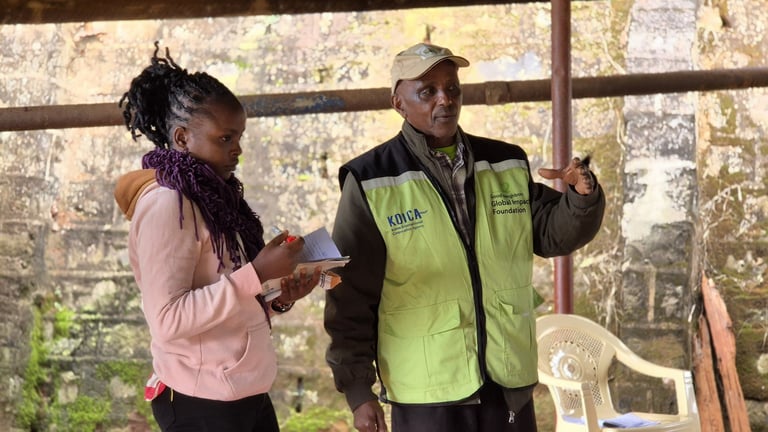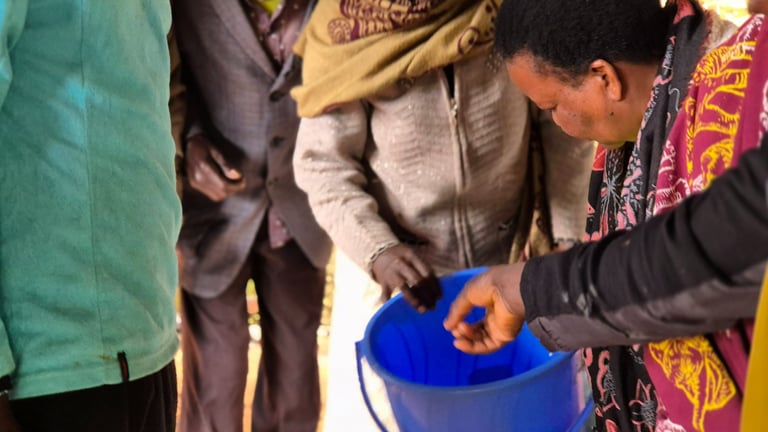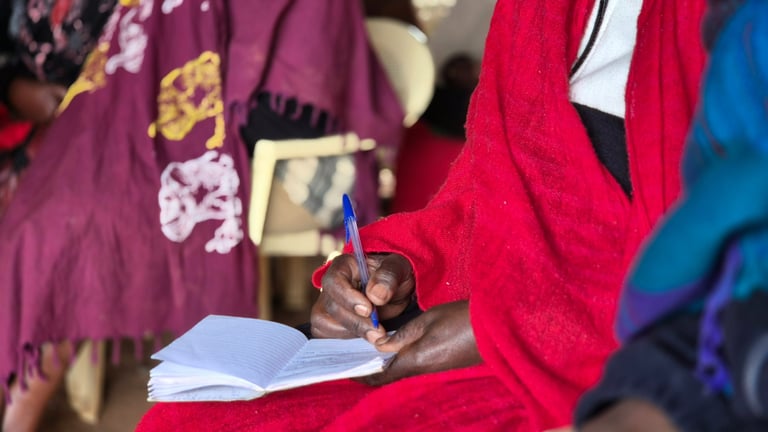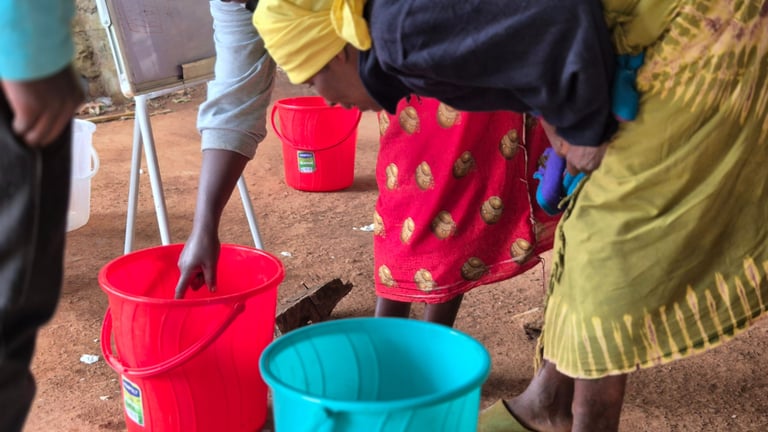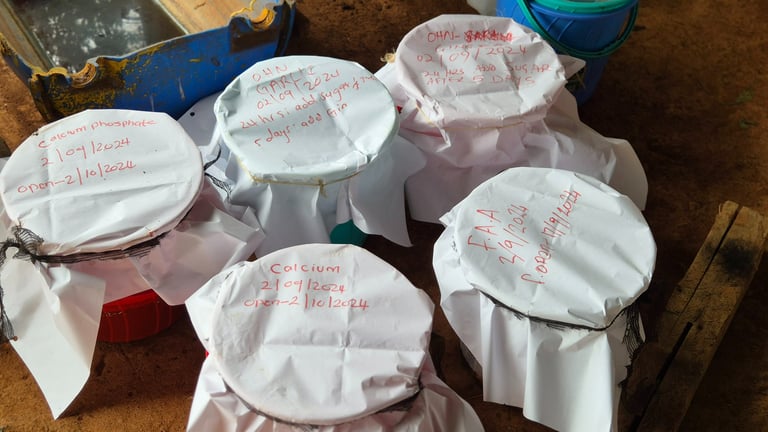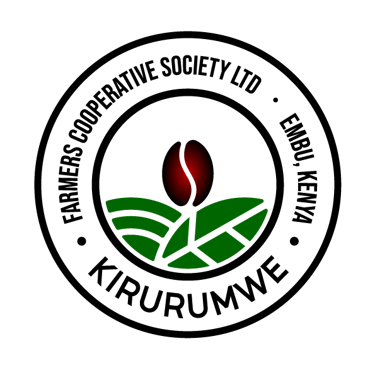Empowering Farmers through Eco-Friendly Practices: Training at KFCS Factories
BLOG POST
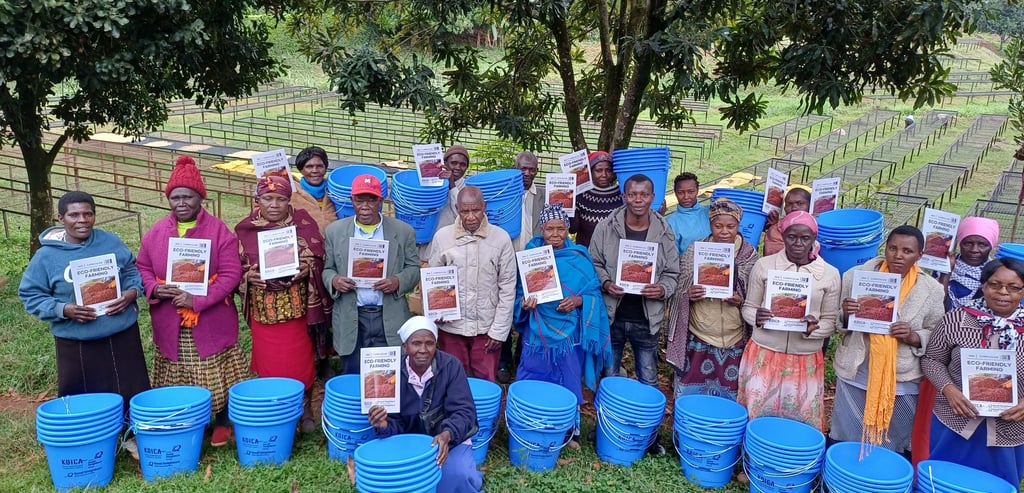

Introduction : Eco-Friendly Farming Training
In line with our commitment to enhancing sustainable coffee farming, Kirurumwe Farmers Cooperative Society (KFCS) recently completed the fourth round of eco-friendly farming training. The training was conducted from August 26th to September 5th, 2024, in the three KFCS factories: Kevote, Kianjuki, and Ngaindethia. The training is part of a broader income generation project funded by Korea International Cooperation Agency (KOICA), Good Neighbors Global Impact Foundation(GNGIF) and facilitated by Kenya Good Neighbors, with a vision to uplift the livelihoods of coffee farmers in Embu County. This remarkable initiative equipped 396 farmers with essential knowledge in eco-friendly farming practices that was led by KFCS’s Trainers of Trainers (TOTs), who emphasized sustainable agricultural practices to improve both coffee production and farmers' income while preserving the environment.
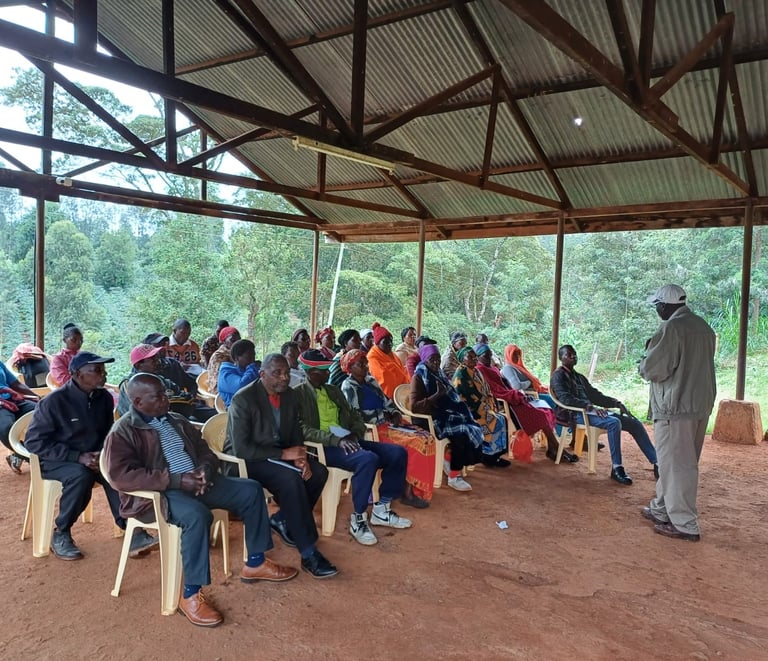

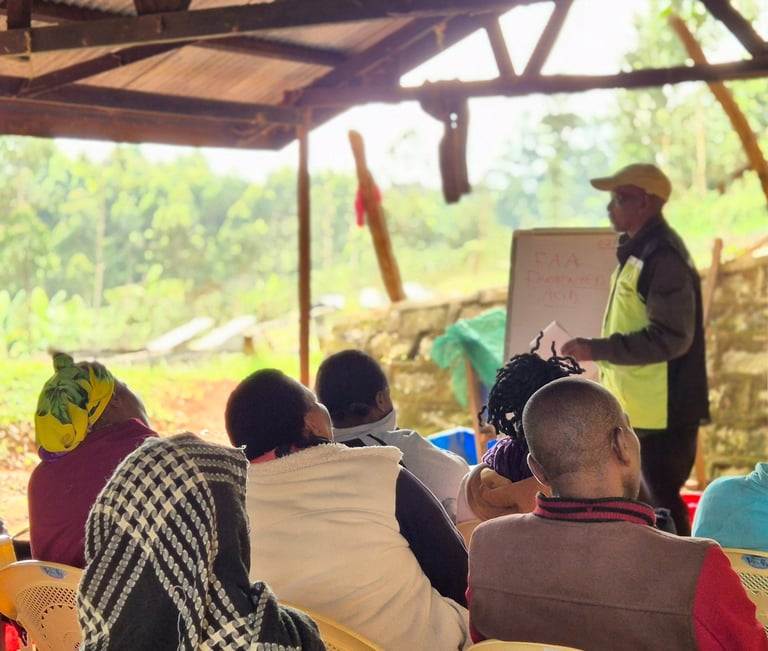

The Objectives
Eco-friendly farming, also known as natural farming, is a sustainable agricultural system that leverages natural and local resources to boost productivity. By relying on nature to provide nutrients and protect crops from pests, this approach eliminates the need for harmful chemicals and fertilizers. The benefits of eco-friendly farming extend beyond environmental preservation—it also enhances crop yields and reduces production costs, making it both eco-conscious and economically viable.
The primary objective of the training was to help KFCS farmers adopt these sustainable practices, ensuring both environmental preservation and increased income. Through the training, participants were equipped with innovative techniques that promote sustainable coffee management, enabling them to effectively utilize natural resources and shift away from traditional farming methods.
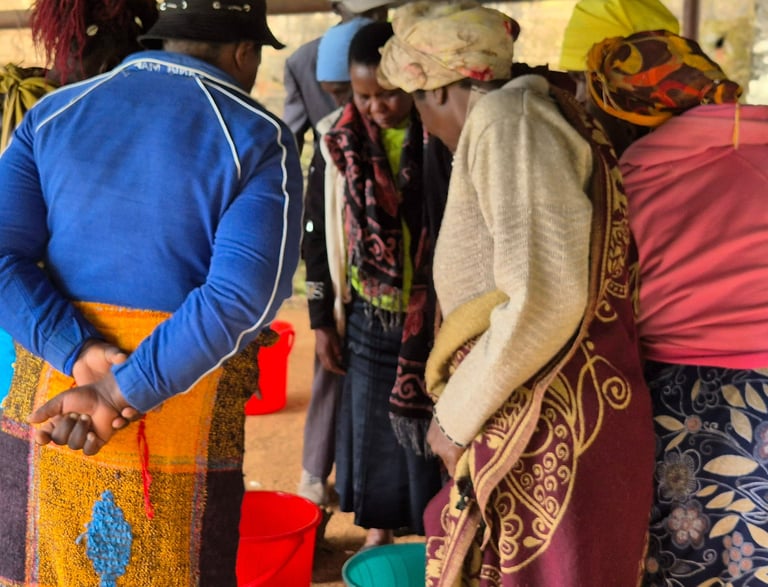

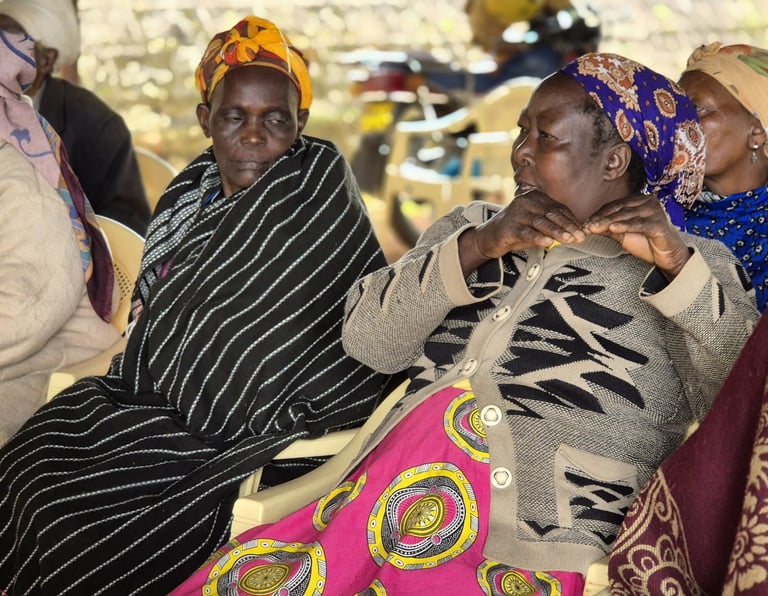

Training Modules and Core Techniques
The eco-friendly farming training for KFCS members introduced various sustainable agricultural practices, aimed at improving soil health and boosting coffee production without harming the environment. Below is a summary of the modules covered during the training:
1. Principles of Natural Farming
The trainees were introduced to natural farming principles which focused on reducing soil disturbance, encouraging healthy microorganism growth, and minimizing the use of synthetic inputs. The key practices covered included:
Zero Tillage: Farmers learned the benefits of avoiding tillage, which helps retain essential soil microorganisms. They were informed that tillage disturbs the soil, exposing microorganisms to harmful sunlight and rain, while zero tillage promotes a symbiotic relationship between soil microorganisms and plants.
Mulching: The farmers were trained on the importance of covering the soil with dead plant material (mulching). This method not only protects the microorganisms but also helps retain moisture, prevent soil erosion, suppress weeds, and enhance the soil structure. Mulching contributes to a healthier and more sustainable farming ecosystem.
Composting: Farmers were taught the process of composting, which involves combining dry matter (carbon source), green matter (nitrogen source), air, water, and microorganisms. A practical demonstration of how to create aerobic compost was conducted, showing the proper steps, such as constructing a compost box, adding layers of materials, and maintaining moisture and temperature for optimal decomposition.
2. Indigenous Microorganisms (IMOs)
IMOs play a critical role in natural farming. Farmers were introduced to techniques for harvesting IMOs from their local environment. The IMOs are beneficial microorganisms that support plant health by providing nutrients and protecting against diseases. The training also covered how to multiply these microorganisms and apply them to the soil, enhancing plant growth naturally without synthetic fertilizers.
3. Fermented Plant Juice (FPJ)
FPJ is used to enrich the soil with nitrogen, enhance photosynthesis, and serve as food for microorganisms. Farmers were trained on how to create FPJ using green plant materials and molasses. This natural solution can be applied to plants as a foliar spray or to the soil, promoting healthier crops.
4. Fermented Fruit Juice (FFJ)
FFJ, made from local fruits, was introduced as a natural supplement for improving plant sweetness and aiding animal digestion. The process of fermenting fruits with sugar was demonstrated, along with guidelines on proper usage and storage.
5. Fish Amino Acid (FAA)
FAA is a nutrient-rich solution prepared by fermenting fish intestines with brown sugar. It serves as a natural nitrogen source for plants and a protein supplement for animals. The trainees learned how to prepare and apply FAA to enhance plant and animal health.
6. Oriental Herbal Nutrient (OHN)
The participants were introduced to the preparation of OHN, a natural pesticide and fungicide made from fermented ginger, garlic, and alcohol. This solution is used to control pests and diseases in both plants and animals, offering a natural alternative to chemical pesticides.
7. Calcium and Calcium Phosphate
Calcium and calcium phosphate play an essential role in plant growth, particularly during flowering. Farmers were trained on how to make calcium from eggshells and calcium phosphate from animal bones. These natural supplements help strengthen flowering and improve overall crop productivity.
Through participatory discussion sessions, farmers exchanged ideas, experiences, and challenges in eco-friendly farming. This collaborative environment fostered a sense of community among the participants, further enhancing the training's impact.
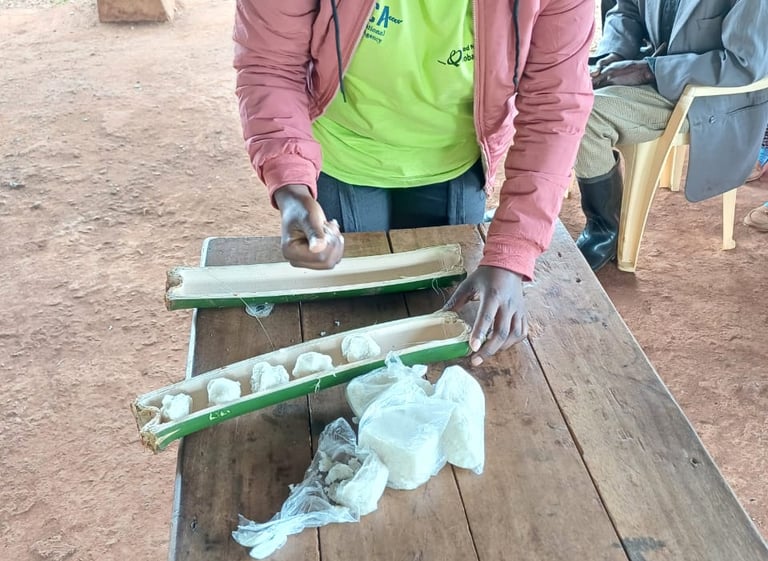

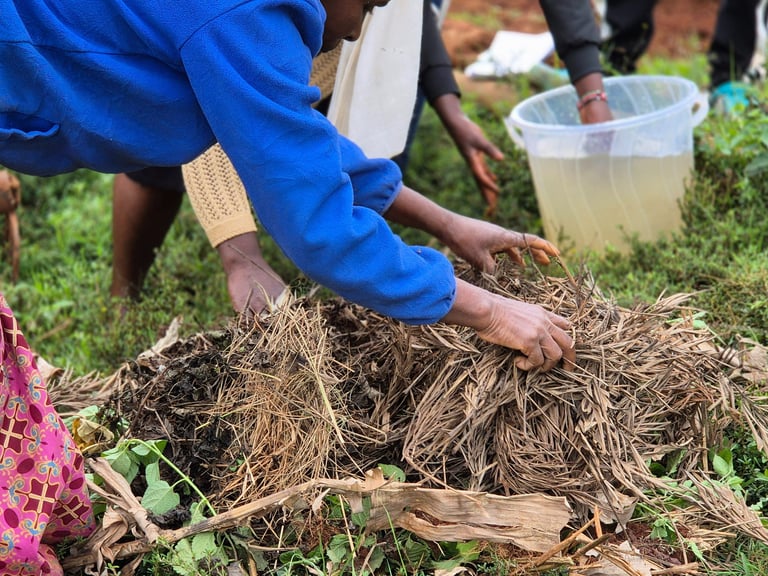

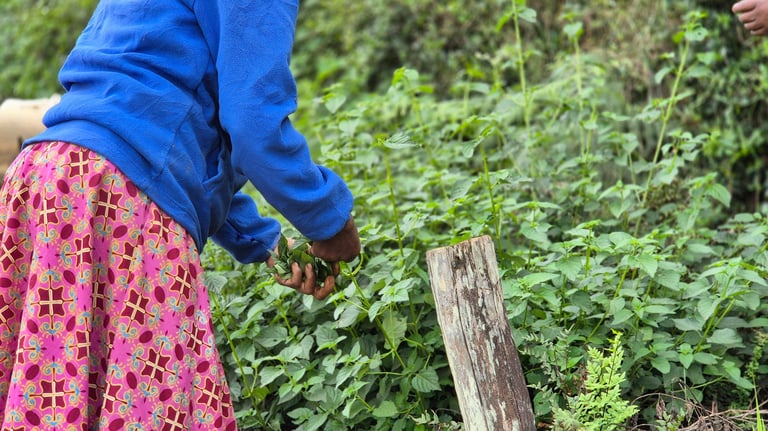

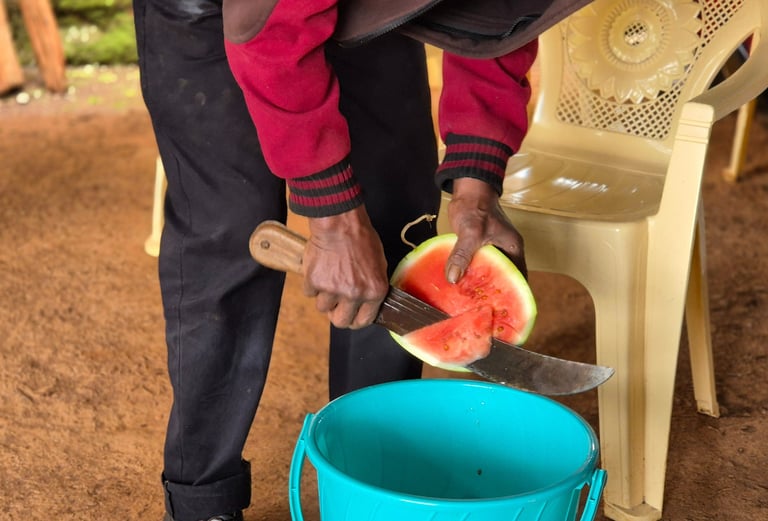

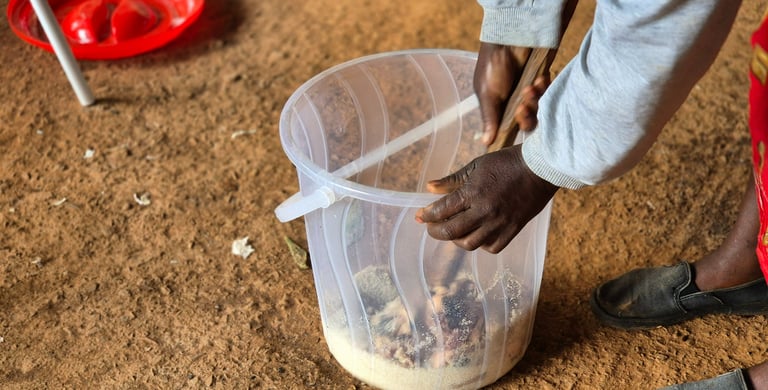

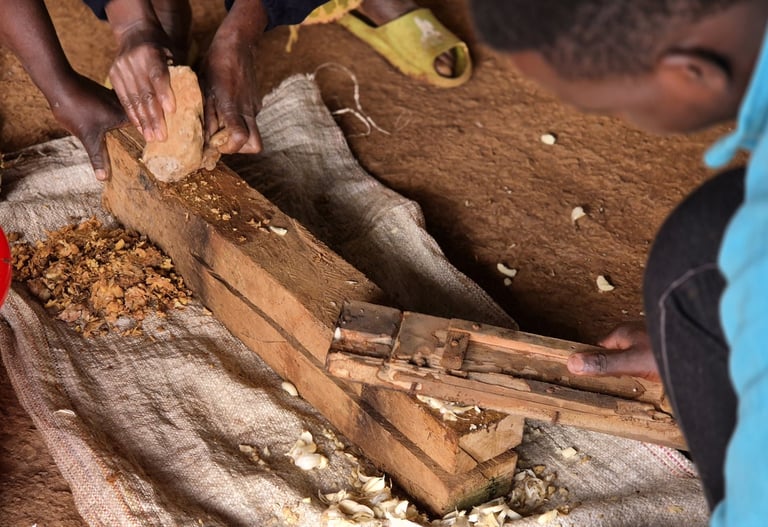

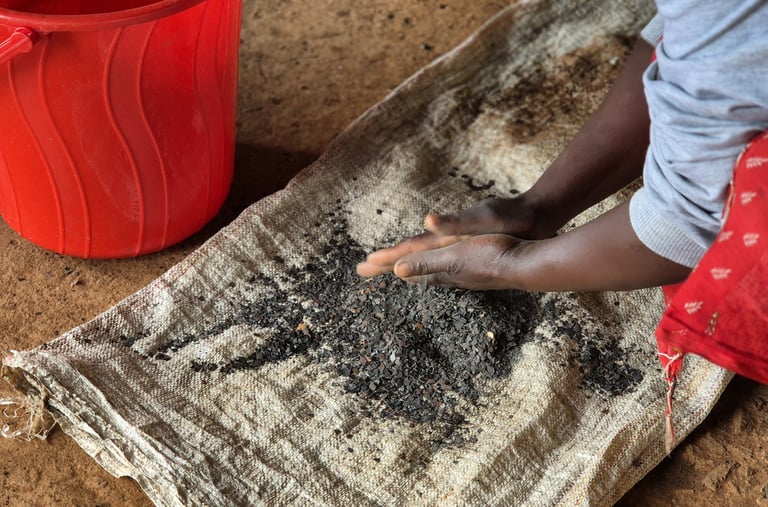

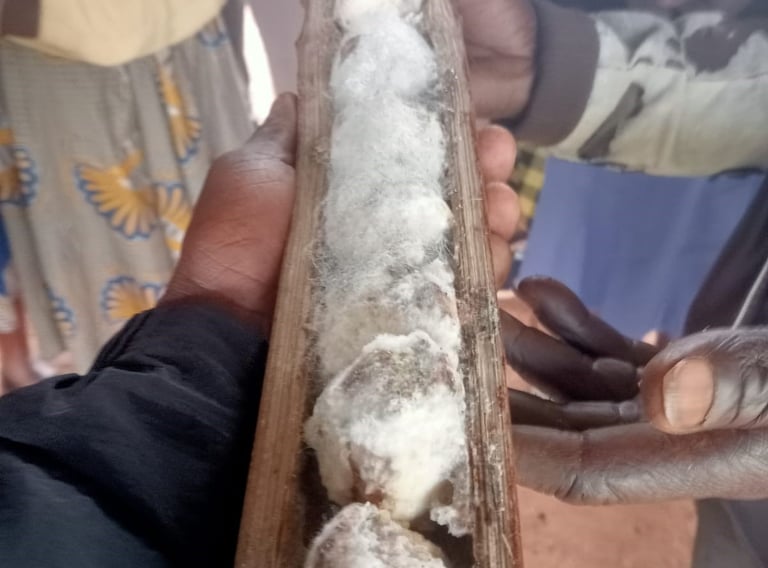

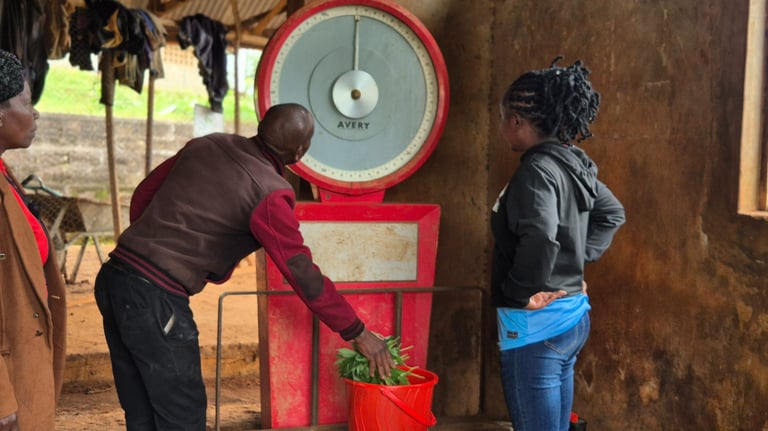

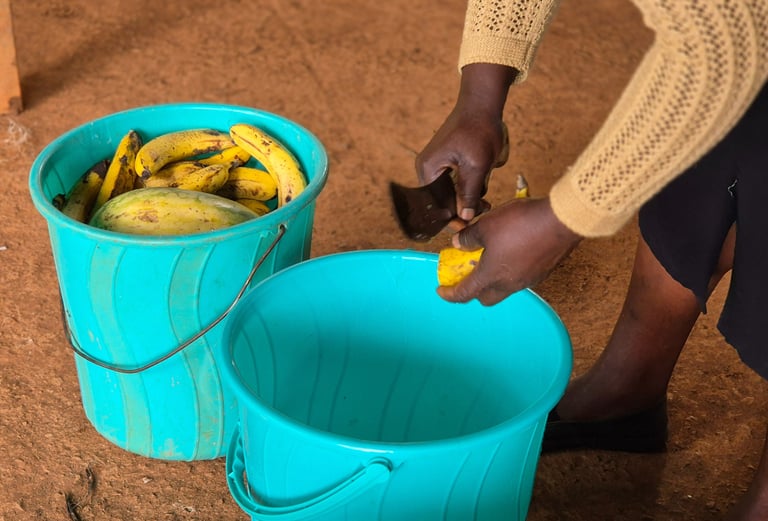





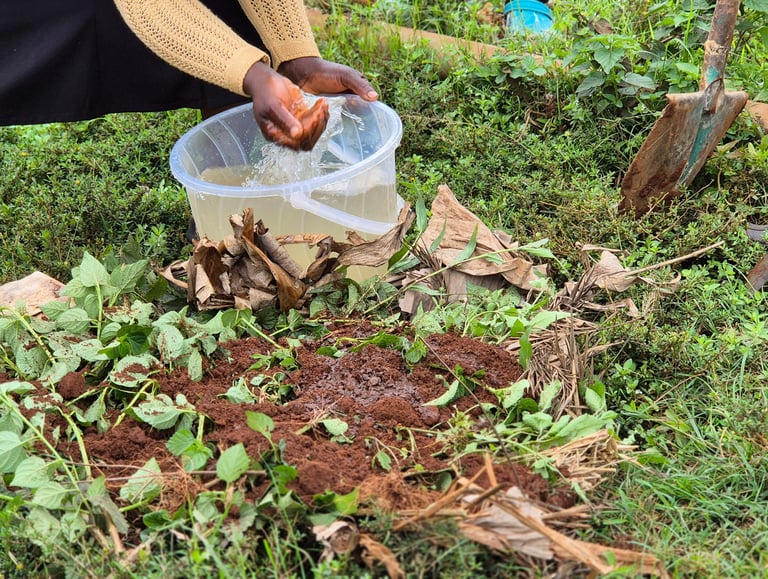

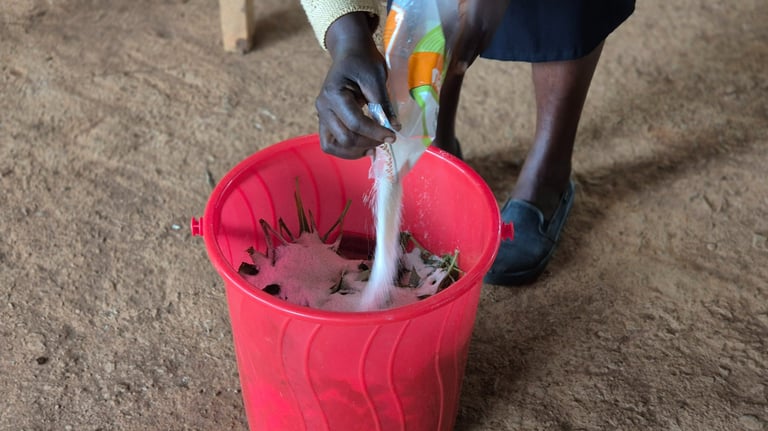

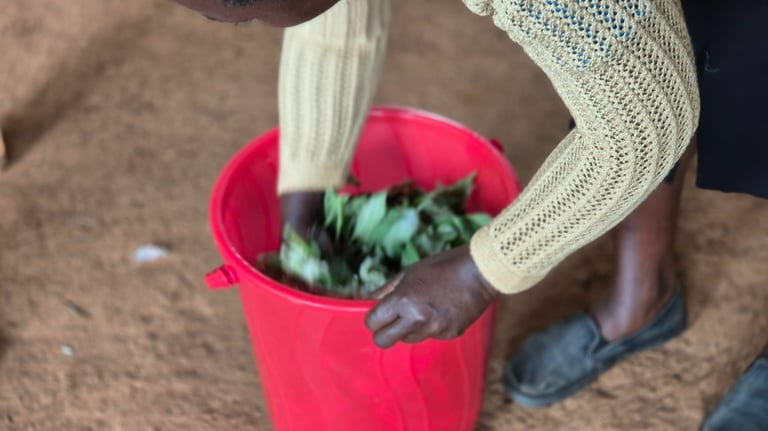

Conclusion: A Step towards Sustainable Coffee Production
The eco-friendly farming training conducted at KFCS factories stands as a significant milestone in empowering farmers in Kirurumwe and surrounding areas. By adopting sustainable practices, these farmers can not only improve their coffee production and income but also contribute positively to environmental preservation.
As the world shifts towards sustainable agricultural practices, this initiative represents a forward-thinking approach that integrates eco-consciousness with economic viability. The knowledge imparted during this training will ripple through the farming community, encouraging more farmers to embrace eco-friendly techniques in their agricultural endeavors.As eco-friendly farming gains traction within KFCS, the cooperative aims to expand its reach. The farmers have expressed interest in forming groups to implement the techniques together. Additionally, demonstration farms at each factory are being considered to further spread knowledge and encourage adoption.
KFCS remains committed to sustainable farming, ensuring that coffee production not only thrives but also contributes to environmental conservation.
Eco-friendly Farming
"We're Cultivating a Sustainable Future, Farming in Harmony with Nature"
